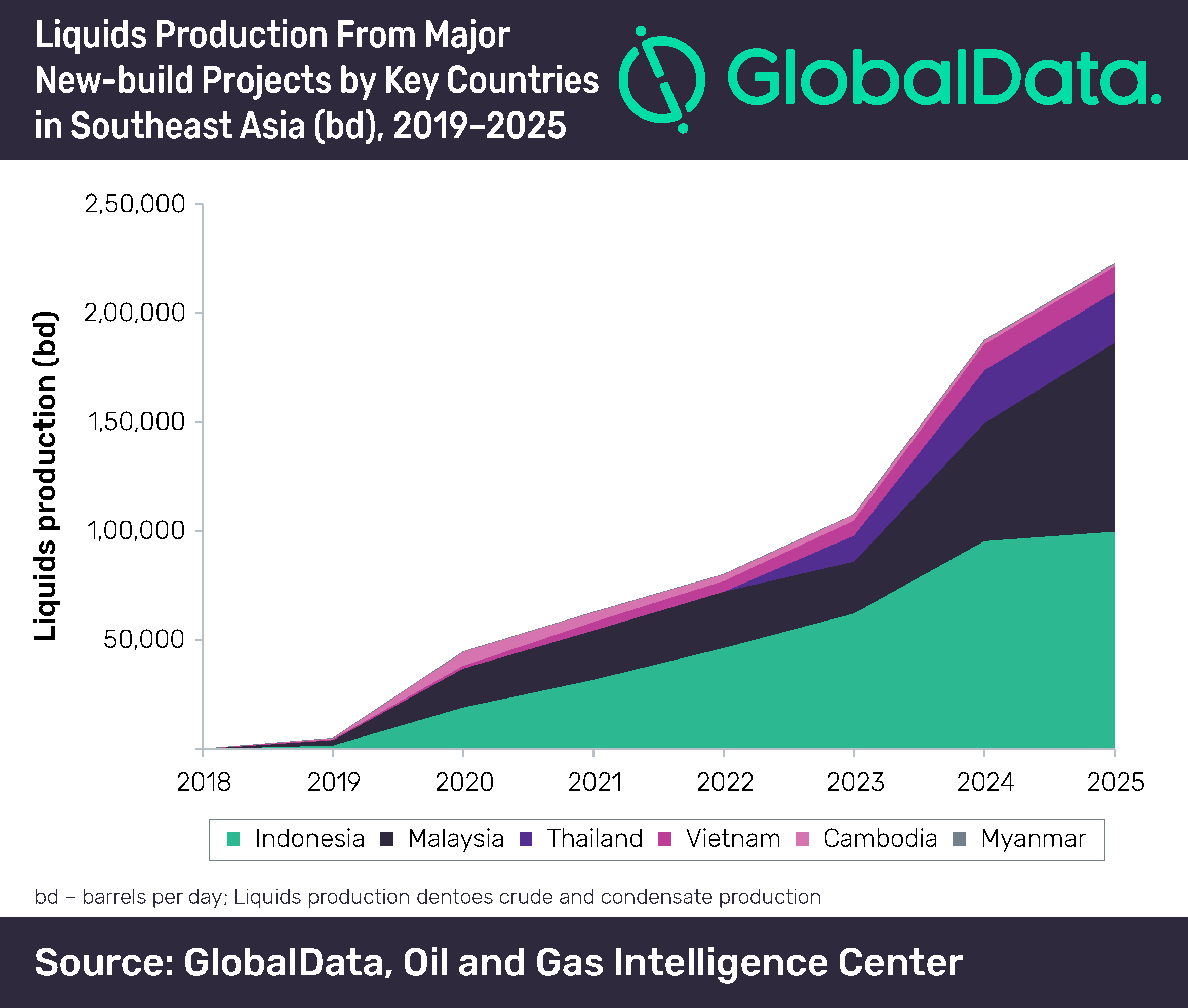Indonesia and Malaysia will contribute around 80 percent of Southeast Asia’s total crude production from eight planned and announced projects in 2025, according to GlobalData, a leading data and analytics company.
The company’s report: ‘H1 2019 Production and Capital Expenditure Outlook for Key Planned and Announced Upstream Projects in Southeast Asia – Indonesia and Malaysia Lead in Oil and Gas Production’ reveals that besides crude production, Indonesia and Malaysia will also contribute more than 70% of Southeast Asia’s total natural gas production from planned and announced projects in 2025.
Arpan Roychowdhury, Oil & Gas Analyst at GlobalData, comments: “The start of production of major crude oil projects such as Ande Ande Lumut and E6, and gas projects such as Abadi and Pegaga is set to drive oil and gas production in both Indonesia and Malaysia during the outlook period.”

In Southeast Asia, a total of 54 crude and natural gas projects are expected to start operations in six countries during 2019–2025. Among these, 25 represent the number of planned projects with identified development plans and 29 represent the number of early-stage announced projects that are undergoing conceptual studies and that are expected to get approved for development.
Among the countries, Indonesia accounts for highest number of upcoming crude and natural gas projects with 13 planned and 14 early-stage announced projects.
GlobalData identifies Malaysia as the second highest country with 18 upcoming projects – nine each in planned and announced stage. Vietnam follows with six upcoming projects, expected to come online by 2025. Cambodia, Thailand and Myanmar are the other countries in Southeast Asia with one upcoming project each.
About GlobalData
4,000 of the world’s largest companies, including over 70% of FTSE 100 and 60% of Fortune 100 companies, make more timely and better business decisions thanks to GlobalData’s unique data, expert analysis and innovative solutions, all in one platform. GlobalData’s mission is to help our clients decode the future to be more successful and innovative across a range of industries, including the healthcare, consumer, retail, technology, energy, financial and professional services sectors.





